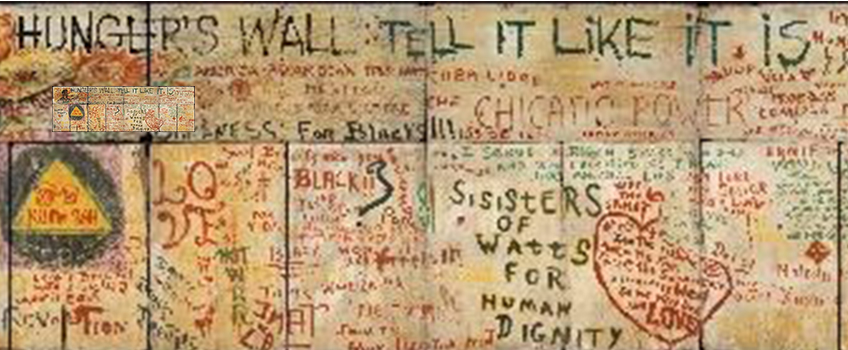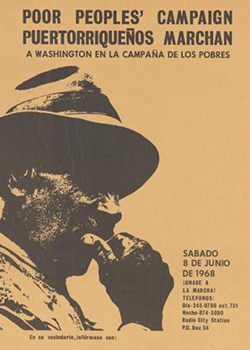City of Hope: The 1968 Poor People's Campaign

Hammonton, N.J. - The Noyes Museum of Art at Stockton University Kramer Hall presents “City of Hope: Resurrection City and the 1968 Poor People’s Campaign” on display from Feb. 15 - May 9.
 The poster exhibition examines the Poor People’s Campaign—a grassroots, multiracial
movement that drew thousands of people to Washington, D.C. For 43 days between May
and June 1968, demonstrators demanded social reforms while living side-by-side on
the National Mall in a tent city known as Resurrection City.
The poster exhibition examines the Poor People’s Campaign—a grassroots, multiracial
movement that drew thousands of people to Washington, D.C. For 43 days between May
and June 1968, demonstrators demanded social reforms while living side-by-side on
the National Mall in a tent city known as Resurrection City.
Organized by the Smithsonian Institution Traveling Exhibition Service (SITES) in collaboration
with the National Museum of African American History and Culture, “City of Hope” highlights
a series of newly discovered photographs and an array of protest signs and political
buttons collected during the campaign.
Although President Lyndon B. Johnson declared a “war on poverty” in 1964, tens of millions of Americans were denied livable wages, adequate housing, nutritious food, quality education, and healthcare. Led by Drs. Martin Luther King Jr. and Ralph David Abernathy, the Southern Christian Leadership Conference (SCLC) organized the Poor People’s Campaign in response to poverty as a national human rights issue.
Stretching 16 acres along the National Mall between the Lincoln Memorial and the Washington
Monument, Resurrection City housed 3,000 protesters with structures for essential
services like sanitation, communications, medical care and childcare. It included
a dining tent, cultural center and a city hall along the encampment’s bustling “Main
Street.”
The Poor People’s Campaign marked an important moment in U.S. history and set the
stage for future social justice movements. Within months after Resurrection City’s
evacuation, major strides were made toward economic equality influencing school lunch
programs, rent subsidies and home ownership assistance for low-income families, education
and welfare services through the Bureau of Indian Affairs, and more.
 The City of Hope exhibition is open to the public during Kramer Hall hours, Monday
and Thursday from 8:30 a.m. to 8 p.m. and Tuesday, Wednesday and Friday from 8:30
a.m. to 5 p.m. Kramer Hall is located at 30 Front St. in Hammonton. Face coverings
are required and social distancing protocols are in place. A virtual exhibition will
also be available on the Noyes Museum website at noyesmuseum.org.
The City of Hope exhibition is open to the public during Kramer Hall hours, Monday
and Thursday from 8:30 a.m. to 8 p.m. and Tuesday, Wednesday and Friday from 8:30
a.m. to 5 p.m. Kramer Hall is located at 30 Front St. in Hammonton. Face coverings
are required and social distancing protocols are in place. A virtual exhibition will
also be available on the Noyes Museum website at noyesmuseum.org.


